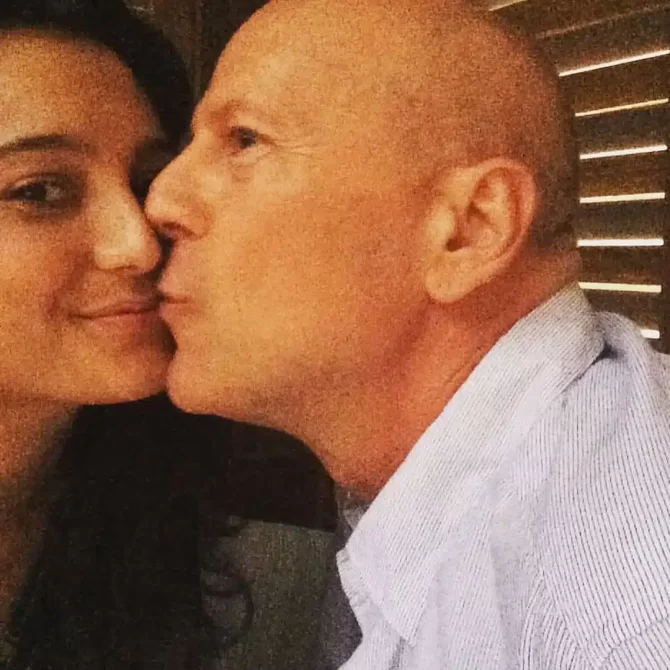
Bruce Willis has been a Hollywood icon for decades, but his most challenging role has come away from the spotlight. When his wife, Emma Heming Willis, noticed changes in his behavior, she thought they were caused by the hearing loss he suffered while filming Die Hard. Over time, however, the symptoms pointed to something more serious—what would later be diagnosed as frontotemporal dementia.
In her new book, The Unexpected Journey: Finding Strength, Hope, and Yourself on the Caregiving Path, Heming Willis opens up about her life as a caregiver. She recalls how Willis’s stutter returned, how conversations felt different, and how their connection seemed to fade. “I just knew in my gut that something else was going on,” she explained to Fox News Digital. That moment marked the beginning of their journey with Bruce Willis’s dementia.
Bruce Willis’s Dementia Signs First Appeared Subtly

At first, Heming Willis believed miscommunication came from her husband’s hearing loss. She noticed him withdrawing at family dinners, quietly sitting back instead of joining in with his daughters. While it seemed harmless, she realized this was not the man she had always known.

Determined to find answers, Heming Willis turned to doctors. Although early tests showed nothing, she pushed until Willis received a diagnosis. In 2022, the family revealed his struggle with aphasia. Nearly a year later, they confirmed the more specific condition—frontotemporal dementia. The news was devastating, yet it gave the family clarity on what they faced.
Finding Strength Through Caregiving

The diagnosis left Heming Willis heartbroken. She described herself as “free-falling” when she first heard it. With few resources, she searched for information, spoke with experts, and built a community of caregivers. Sharing what she learned became a way to cope and also help others.

Despite the challenges, she continues to find joy in her time with Willis. She says he remains present, laughing, and sharing love with his family. For Heming Willis, Bruce Willis’s dementia has brought pain, but it has also deepened her appreciation for every moment together. Her story offers hope to families facing the same journey.
